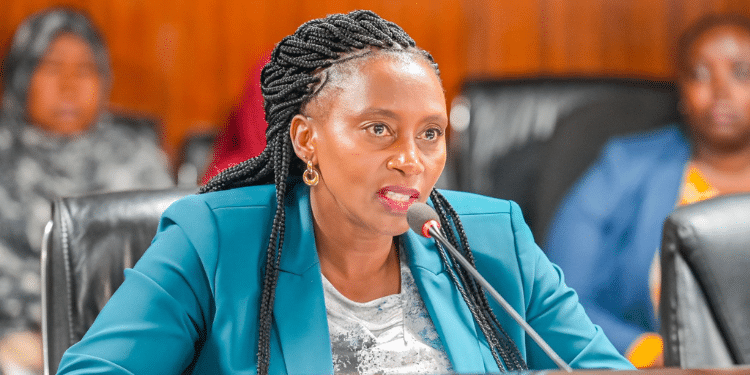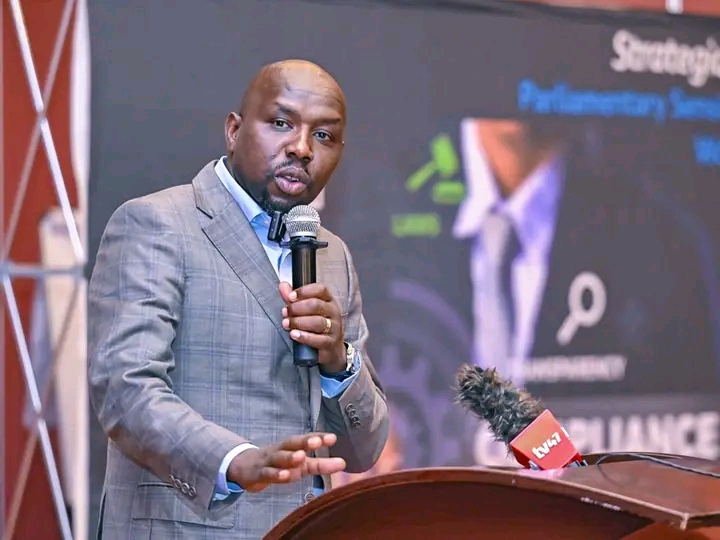Gov’t Move to Revoke Nicotine Product Licences Meant to Protect Youth and Curb Addiction, Says Health PS Muthoni
Health PS Mary Muthoni has defended the government's suspension of nicotine product licences, citing rising addiction among youth and women. She also raised concern over misuse of prescription drugs like Ozempic. The move is part of broader efforts to safeguard public health and promote responsible drug use.
The government has strongly defended its recent decision to suspend all licences related to the manufacture, importation, sale, and promotion of nicotine products in Kenya. Principal Secretary in the State Department for Public Health, Mary Muthoni, stated that the drastic move is necessary to address growing public health threats posed by the widespread use of nicotine-based substances, especially among youth and women. She made these remarks on Thursday, June 5, 2025, during an interview on a local television station.
PS Muthoni revealed that the decision was prompted by a deeply concerning infiltration of the nicotine market, making it impossible for health authorities to ascertain the safety and quality of the products being consumed. “The market had become so infiltrated, we didn’t know what we were dealing with,” she said. According to Muthoni, the uncontrolled distribution of nicotine products had opened the door to potentially harmful substances circulating among consumers, including minors, without proper regulation or oversight.
One of the most worrying trends, Muthoni explained, is the rise in vaping among children and teenagers. Citing new data, she revealed that over 100,000 children between the ages of 10 and 17 are currently engaged in vaping. Additionally, she noted an increase in the number of women taking up smoking. “These are not just numbers on a chart,” Muthoni warned. “They represent real lives, real families, and a future that is in jeopardy if we don’t act now.” She emphasized that the suspension is not just a punitive measure but a strategic intervention aimed at protecting the most vulnerable members of society.
Muthoni also addressed a rising concern over the misuse of pharmaceutical drugs, particularly the diabetes medication Ozempic, which is increasingly being used for rapid weight loss without medical supervision. “The Pharmacy and Poisons Board is currently investigating the misuse of Ozempic,” she said. “We are seeing more people turn to prescription drugs for off-label use, and this trend is extremely dangerous.” She warned that the unregulated use of such drugs could lead to severe health complications and even fatalities.
The PS urged Kenyans to always seek medical advice from licensed professionals before using any prescription medication. Turning to broader health sector challenges, PS Muthoni acknowledged that funding remains a key hurdle. With traditional donor funding shrinking, she disclosed that the government is shifting its focus towards local resource mobilisation to fill financial gaps. “It’s high time we own our solutions. Relying solely on external funding weakens our ability to respond to local health crises,” she said.
Muthoni noted that the State is committed to building internal systems and home-grown solutions to strengthen healthcare delivery and ensure sustainability in public health efforts. The suspension of nicotine licences, alongside efforts to curb pharmaceutical misuse, is part of a comprehensive strategy by the government to reclaim control over health regulation and improve the wellbeing of Kenyans. Muthoni confirmed that the State will soon launch nationwide campaigns to educate the public on the dangers of vaping, smoking, and self-medication.
She called on parents, schools, religious leaders, and the community at large to work hand-in-hand with the government in addressing these rising threats. “We’re not just banning products; we are saving a generation,” she concluded.













